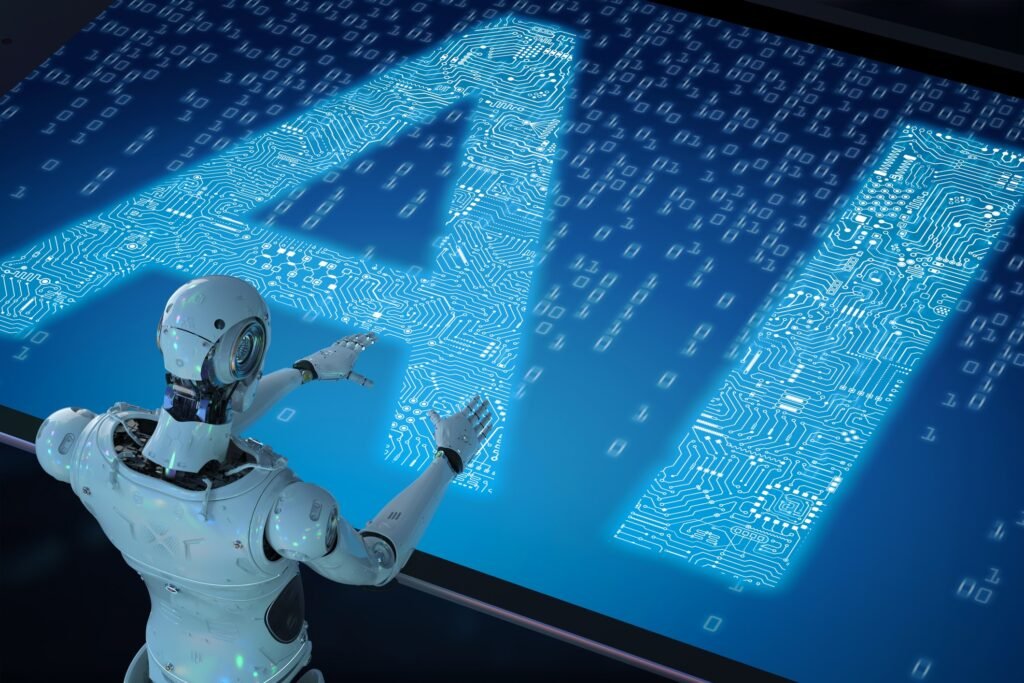Artificial Intelligence (AI) has emerged as a transformative force in the modern workplace, fundamentally changing how businesses operate and making workplace automation more accessible and effective than ever before. From streamlining mundane tasks to enabling advanced data-driven decision-making, AI is reshaping job markets, employment trends, and overall workplace dynamics.
Impact of AI on Job Markets and Employment Trends
The introduction of AI into the workplace is having a profound impact on job markets worldwide. On one hand, it is automating repetitive tasks, reducing the need for human intervention in various roles. For example, customer service representatives are being supplemented or replaced by AI-driven chatbots, and administrative tasks are increasingly managed by AI-powered virtual assistants. According to a report by the World Economic Forum, AI and automation could displace 85 million jobs globally by 2025.
However, this does not necessarily mean a net loss in employment. While some jobs are becoming obsolete, AI is also creating new opportunities in fields like AI development, data science, machine learning, and robotics. As companies integrate AI into their business models, there is a growing demand for skilled professionals who can design, maintain, and enhance these systems. Moreover, roles that require creative thinking, complex problem-solving, and human empathy are becoming more valuable.
Ways Businesses Are Using AI to Improve Productivity
Businesses across various industries are leveraging AI to boost productivity and streamline operations. Here are some of the key areas where AI is making a significant impact:
- Data Analysis and Decision Making: AI tools can analyze vast amounts of data faster and more accurately than human employees, helping companies make better, data-driven decisions. For instance, AI algorithms can identify trends and patterns in customer behavior, enabling businesses to tailor their marketing strategies more effectively.
- Automating Routine Tasks: AI-powered systems can handle repetitive, time-consuming tasks such as data entry, scheduling, and invoice processing. This not only reduces the workload on employees but also minimizes errors, leading to cost savings and enhanced efficiency.
- Customer Service and Support: AI chatbots and virtual assistants provide 24/7 customer support, handling basic inquiries and resolving issues without human intervention. This not only improves response times but also frees up human agents to focus on more complex, high-value tasks.
- Personalized Marketing: AI algorithms can analyze customer data to provide personalized product recommendations, targeted advertisements, and customized content. This helps businesses engage their customers more effectively, improving conversion rates and customer satisfaction.
- Enhancing Employee Experience: AI can be used to create a more personalized and engaging employee experience. For example, AI-driven HR tools can provide customized training programs, predict employee turnover, and even assist in the hiring process by analyzing candidates’ profiles to identify the best fit.
AI-Powered Tools Transforming the Way We Work
Several AI-powered tools are helping businesses automate their workflows and improve productivity:
- Microsoft Power Automate: A versatile tool for automating workflows across Microsoft and third-party apps. It helps with data synchronization, task automation, and notification generation.
- Grammarly: An AI-powered writing assistant that helps professionals create clear, concise, and error-free content, saving time and improving communication.
- Zapier: A tool that automates tasks between different web apps, reducing manual effort and enhancing productivity.
- HubSpot: Offers AI tools for marketing automation, sales, and customer service, including chatbots, predictive lead scoring, and automated email campaigns.
- UiPath: A leading robotic process automation (RPA) tool that automates repetitive processes like data extraction, data entry, and reporting.
Challenges in AI Adoption and Workplace Automation
Despite the benefits, adopting AI in the workplace is not without its challenges. Here are a few key concerns:
- Job Displacement Fears: As AI continues to automate tasks, there is a growing concern about job displacement. However, the shift often involves the creation of new roles requiring different skill sets, emphasizing the need for upskilling and reskilling.
- Data Privacy and Security: AI systems often rely on large amounts of data, raising concerns about data privacy and security. Companies need to ensure that their AI tools comply with data protection regulations and are designed to protect sensitive information.
- Bias in AI Algorithms: AI systems can inherit biases from the data they are trained on, leading to biased decisions. Organizations must be vigilant in monitoring and refining their AI tools to ensure fair and unbiased outcomes.
- Integration and Scalability: Integrating AI into existing systems can be complex and costly, requiring significant investments in infrastructure and training. Businesses must ensure that they have a clear strategy for AI adoption that aligns with their goals.
Embracing the Future: A Call to Action
The future of work is undeniably intertwined with AI and automation. To thrive in this new era, businesses must embrace AI technologies while addressing the challenges associated with their adoption. The key lies in balancing automation with human-centric skills and leveraging AI to augment, rather than replace, human capabilities.
As AI continues to evolve, its impact on the workplace will only grow. Companies that invest in AI-driven solutions now will be better positioned to adapt to future changes and remain competitive.
Need Guidance on AI Integration? Contact Vision Tact FZCO!
If you are looking to explore how AI can transform your business and improve your productivity, Vision Tact FZCO is here to help. Our consultancy services can guide you through the complexities of AI adoption, from identifying the right tools to integrating them seamlessly into your workflow. Contact us today to learn more about how we can help you leverage AI for success.

